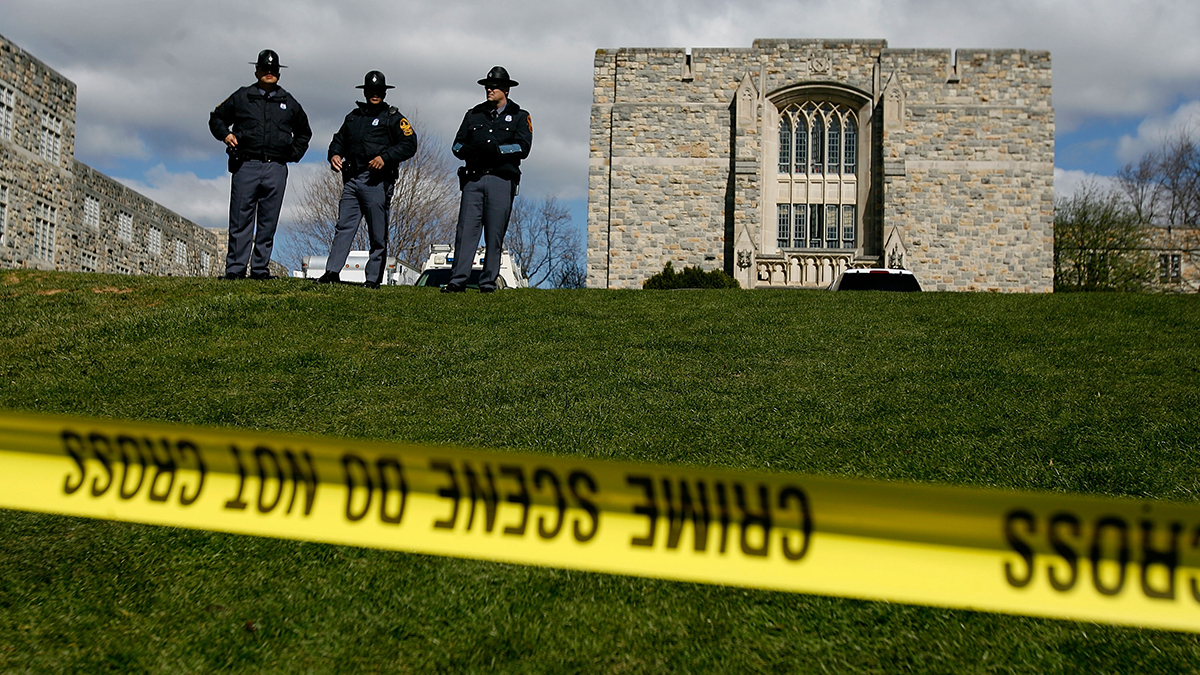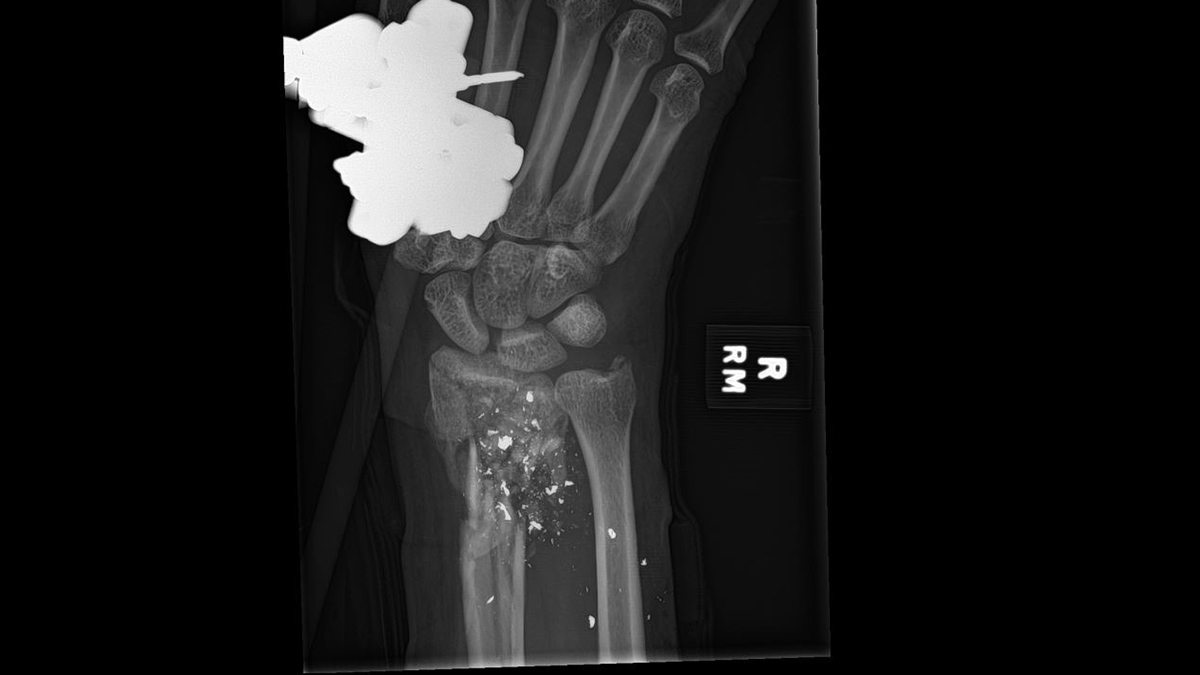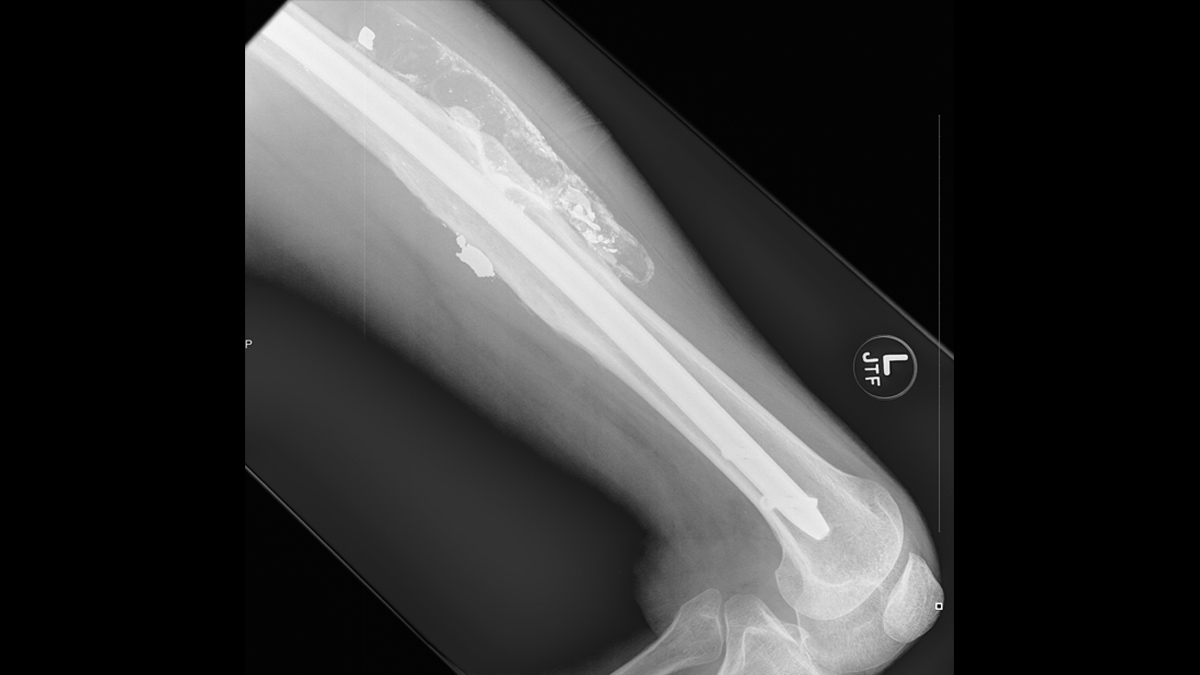
Colin Goddard has been traumatized twice.
Twelve years ago, he was shot four times during the rampage at Virginia Tech. He thought he recovered — only to learn he's slowly being poisoned by the toxic lead bullets that are still in his body.
"I survived the shooting at Virginia Tech in 2007, and now I'm having to survive it again in 2019, in a whole other way," Goddard said.
Goddard's experience has the potential to affect tens of thousands of people who may not even know they're at risk. That's why he's trying to warn other victims of gun violence about a long-term threat to their health.
On April 16, 2007, Goddard was in French class at Virginia Tech when he was shot four times.
"It was the most terrifying experience of my life. It was just the constant sound of gunfire," he said.

Thirty-two students and faculty members died in the violence. Goddard is considered one of the lucky ones, having survived the worst school shooting in U.S. history.
U.S. & World
One bullet pierced his shoulder and then exited. But three other bullets shattered into tiny pieces in his body, and doctors said it was too risky to remove them.
"When my wounds healed, I still had three bullets in my body in a bunch of little pieces," he said. "The rest of the pieces I was told were going to be with me forever and it wouldn't be a problem."
But it is a problem. It turns out that Goddard is suffering from lead poisoning. At one point, his levels were seven times higher than what's considered safe.
Dr. Robert Bunning, who works at MedStar National Rehabilitation Hospital in Northwest D.C., says most people aren't even aware of the risk. For some victims, it can takes years to develop symptoms.
"They can sit around quietly for a while and then gradually cause symptoms," Bunning said. "There's been one case reported of a person who had symptoms 51 years after a bullet injury."

Almost a decade after Goddard was shot, he noticed subtle changes to his health but chalked it up to his busy schedule, balancing grad school and a growing family.
"The short term symptoms are hard to recognize — things like fatigue, irritability, memory loss. stomach pain," Goddard said. "At the time when I learned about this, I was in grad school, I had a two-year-old, was about to have another one, and was trying to find a job. A lot of those things going on in my life could have caused those things."
His mother who encouraged him to get a blood test after she read an article about the lasting impact of lead ammunition in shooting survivors.
Since his diagnosis, Goddard has had hip surgery to remove more bullet fragments, and he's tried Chelation therapy to clear the toxic metal from his body.
"I tried it for a month," he said. "I had to take like 30 pills a day, every day, for breakfast, lunch, and dinner."
The treatment worked, but Goddard struggled to take so many pills every day. As soon as he stopped taking the pills, the lead in his body elevated to dangerous levels again, although they aren't as high as before he tried the therapy.
He's currently weighing his options and waiting for another round of test results. Another option might be going back in for surgery.
"I want to sound the alarm for all the other survivors out there who don't know about this, who are just like me who were sent from the hospital and told, 'You're fine. Have a great rest of your life,'" Goddard said. "What's been driving me forward to do something is to stop the long term impacts from happening, which are kidney failure, cognitive decline. A bunch of really intense things, because once they happen there's no undoing that."

More than 80,000 Americans will survive a gunshot wound each year, and many still have bullet fragments in their body.
"Until our country does something about the gun laws, its going to continue," Bunning said. "I think every medical center is seeing more of these cases."
Goddard said he hopes his story reaches those surviving victims — to let them know the risks they face and how to test for it.
He's also pushing for legislation to protect people from lead bullets. California recently banned lead bullets for hunting animals, but there's no law on the books at state or federal levels that protects people from the toxic metal.
Goddard's plight captured the attention of Senator Tim Kaine, who was serving as Virginia's governor at the time of the Virginia Tech shooting.
"My wife and I visited [Colin Goddard] in his hospital bed in the days after the shooting in Virginia Tech," Senator Kaine said.
"Many of these shootings would be stopped either by comprehensive background checks or a ban on high-capacity magazines."
Those specific gun control measures have failed in the Virginia legislature and in congress.
"It has been enormously frustrating," Senator Tim Kaine says of the Virginia government's failure to pass gun control measures.
At least 30 states currently have restrictions on when and where toxic lead bullets can be used on animals. However, there is no legislation limiting the use of lead bullets against other people.
"To put it bluntly, it's crazy that we now have laws on the books that don't allow you to hunt animals with lead ammunition because of its impacts to the animals, but yet we don't do anything for humans," says Goddard.



